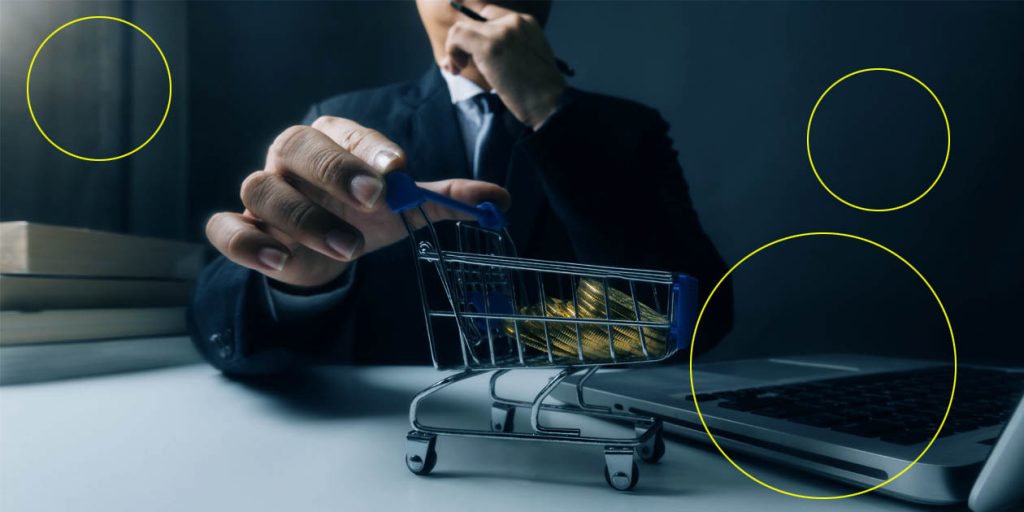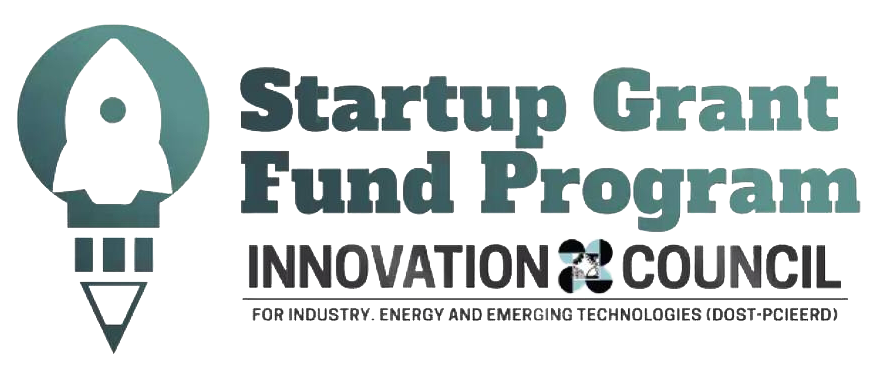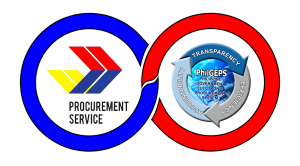In B2B eCommerce, success goes beyond offering quality products or services. It rests on understanding the psychology of its decision-makers behind the purchases and transactions. What influences their buying decisions? What actions do they take before choosing a product or supplier? These questions are one of many to think about when marketing your products or services to B2B customers. In this article, we will talk about the basic psychology of B2B buying, the thinking process of procurement decision-makers, and marketing strategies you can apply to help you hit your target market effectively.
The B2B Buyer Journey

Having a deep understanding of your target market empowers your business to anticipate their buying preferences, allowing you to provide superior services and tailored experiences for B2B customers. The B2B buyer journey involves a common framework: Awareness, Consideration, Decision, Purchase, and Post-Purchase stages.
Awareness Stage
In the initial phase of the B2B buyer journey, organizations come to recognize a challenge or need within their operations. This realization prompts decision-makers to research to better understand the nature of the challenge and identify potential solutions. They actively seek information through online resources, networking, and industry insights to gain insights into the problem and explore available solutions.
Consideration Stage
Once they’ve pinpointed the challenge or need, the B2B buyer moves on to the consideration stage. The focus shifts to evaluating different solutions, providers, or vendors available in the market. The goal is to gather enough information to make informed decisions when choosing a supplier. B2B buyers often reach out to potential suppliers, have discussions, request proposals, and may want to see product or service demos.
Decision Stage
The decision stage is a crucial point in the B2B buyer journey. At this point, the buyer has made up their mind about a specific solution or vendor and is ready to make a choice. This phase includes a detailed evaluation of the chosen option, comparing it to set criteria, and often involves multiple people within the organization. Negotiations happen, contract terms are sorted out, and the details of the deal are worked on.
Purchase Stage
With the decision made, the B2B buyer moves to the purchase stage. This is where the actual transaction takes place. Contracts are created and signed, payments are made, and the product or service is officially acquired. The procurement process, including the legal and financial aspects, is important in this stage. It’s crucial for both the buyer and the vendor to ensure a smooth transition from the decision phase to the actual procurement.
Implementation Stage
In some B2B models, there is an additional implementation stage. This is where the purchased product or service is integrated into the buyer’s organization. Implementation can be a complex process, especially for more complicated solutions. It often involves project management, training, and adjusting existing workflows to accommodate the new addition. The success of the implementation can significantly impact the buyer’s satisfaction and the long-term value derived from the purchase.
Post-Purchase Stage
The B2B buyer enters the post-purchase stage. In this phase, the focus is on evaluating the success and impact of the decision. Feedback may be provided to the vendor, and ongoing support or additional services may be needed. This stage also presents the opportunity to establish a long-term relationship. Satisfied buyers may become repeat customers, loyal to the vendor who has consistently delivered value and support. Building these post-purchase relationships is a crucial part of B2B eCommerce, as it can lead to enduring partnerships and a positive brand reputation.
The Role of Emotional and Rational Decision Making
While purchases in the B2B landscape is heavily driven by rational decision making, it is important to not neglect the emotional decision making department. Understanding the psychology behind B2B buying decision making and its drivers is pivotal for businesses looking to effectively connect with their B2B customers.
Emotional Drivers in B2B Purchasing
1. Trust
Trust is the cornerstone of B2B relationships. Buyers seek vendors they can rely on to deliver as promised. Building trust involves consistency, reliability, and transparency in business interactions. Establishing trust is a crucial emotional driver in B2B decision-making.
2. Desire for Convenience
Convenience plays a significant role in the B2B buying process. Buyers are drawn to solutions and vendors that make their lives easier. This emotional driver often leads to the preference for streamlined processes, user-friendly interfaces, and hassle-free customer support.
Rational Drivers in B2B Purchasing
1. Return for ROI (Return on Investment)
B2B buyers are inherently focused on achieving a return on their investment. Rational decision-making in this context involves assessing the potential for a positive ROI. Buyers meticulously evaluate how a product or service will contribute to their bottom line, looking at factors like increased efficiency, reduced costs, or revenue growth.
2. Maximizing Profitability
B2B buyers often make rational decisions with the goal of maximizing profitability. This includes making choices that not only provide a return on investment but also drive long-term profitability. Rational drivers involve strategic thinking and a focus on how a decision can enhance the overall financial health of the organization.
3. Cost
Cost-consciousness is a central rational driver in B2B purchasing. Buyers carefully analyze pricing structures, ongoing costs, and potential cost savings associated with a product or service. Cost-effective solutions are highly sought after, and competitive pricing is a significant factor in rational decision-making.
The Significance of Trust in B2B Transactions
Trust, whether it’s personal, relationship, or business related, is a cornerstone in maintaining healthy relationships and fostering success – which plays an important factor in the psychology of b2b buying.
Whether it’s B2C or B2B transactions, trust is the foundation of attracting buyers and keeping repeat-customers. In the B2B landscape, where deals often involve substantial investments and long-term commitments, gaining the trust of business partners is the cornerstone of transactions.
Building trust in B2B begins with reliability and consistency. This can be in the form of delivering transactions as promised, and staying committed to contracts signed by both parties. Another part of building trust is transparency and communication. This transparency extends to pricing, terms, and conditions, as well as addressing issues or challenges as they arise.
Trust-building is not just about closing a single deal; it’s about fostering long-term relationships. Businesses that prioritize the well-being and success of their B2B partners demonstrate a commitment to the partnership’s longevity. This approach reassures buyers that their interests are being considered beyond immediate transactions.
Neuromarketing in B2B
Neuromarketing is a game changing concept that combines neuroscience with marketing to better comprehend how consumers and business buyers respond to marketing stimuli. It explores the neurological processes that occur in the brain when individuals make decisions related to purchasing products or services.
Emotional Engagement
One of the fundamental principles of neuromarketing is the recognition that emotions play a significant role in decision-making. It’s often said that people buy based on emotions and justify their decisions with logic. Neuromarketing aims to tap into these emotional responses to create more engaging and persuasive marketing strategies.
Subconscious Decision-Making
Many decisions, especially those related to preferences and brand choices, are made at a subconscious level. Neuromarketing focuses on understanding these hidden processes and designing marketing campaigns that resonate with the subconscious mind.
Visual and Emotional Triggers
Visual elements, like colors, images, and design, can trigger emotional responses in the brain. Neuromarketing identifies which visual cues are most effective in creating positive associations with a brand or product.
Cognitive Biases
Understanding cognitive biases, such as confirmation bias and the anchoring effect, is essential in neuromarketing. These biases influence decision-making, and marketers can use this knowledge to present information in ways that align with these biases.
Applications of Neuromarketing in B2B
While neuromarketing is often associated with B2C marketing, it has a role to play in the psychology of B2B as well.
Content and Design
B2B marketers can use neuromarketing principles to design their websites, emails, and other marketing materials. This includes choosing colors and images that trigger the right emotions and ensuring that content is structured to engage the subconscious mind.
Pricing Strategies
Understanding how the brain perceives pricing can help B2B businesses set their pricing strategies in a way that appeals to the subconscious desire for value. These pricing strategies include but are not limited to bundled pricing, tiered discounts when buying in bulk, or limited time discounts on certain products.
Social Proof
One of the biggest factors triggering the subconscious, rational, and emotional decision making is presenting social proof as a strategy in marketing. Highlight positive reviews from customers you’ve helped by providing your products or services.
A Trusted B2B eCommerce Marketplace for Procurement in the Philippines
One particular B2B SaaS marketplace in the Philippines that can help you market your products and gain brand trust and recognition is Shoppable Business.
Selling your products in a trusted and fastest-growing B2B eCommerce marketplace in the Philippines like Shoppable Business can help your brand gain trust with your business partners.
Why? Shoppable Business has a thorough and rigorous vetting process for suppliers in its platform. Which means this guarantees buyers that they purchase 100% authentic products guaranteed.
Why Become a Seller in Shoppable Business
- Access to a large customer base – giving businesses the opportunity to expand their reach and increase sales
- Increased visibility and brand awareness – a platform for businesses to showcase their products/services and potentially attract new customers
- Pay by Invoice – 30-60 Days Payment Terms
Why Become a Buyer in Shoppable Business
- The Ultimate Platform for Procuring Branded Products in Bulk w/NO MOQ at Wholesale & Factory Direct Prices
- 35+ product categories
- Save company time and money – Customized orders, RFQ for specific quantities, bundles, configuration, Track their orders, view purchase history
- Compare Quotes easily
- Guaranteed BIR Certified Sales Invoices/Receipts
- Pay by Invoice – 30-60 Days Payment Terms
Whether you’re a seller looking for more customers, or a buyer looking to procure products and services for your business, you can join Shoppable Business for FREE!









